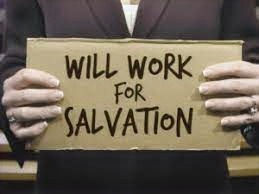Black Like Me
- Tom Quick
- Aug 22, 2020
- 4 min read
Updated: Mar 18, 2021

In 1959, a White journalist from Texas named John Howard Griffin conducted an experiment to discover what it's like to be a Black man in the South. By taking medication and spending hours under an ultraviolet lamp, Griffin darkened his skin to the point where he could pass as Black. Then he set out on a journey through Louisiana, Alabama, Mississippi, and Georgia. Talk about a gutsy move!
This courageous expedition resulted in a highly successful book, published in 1961, entitled "Black Like Me." I strongly urge you to read or reread this fascinating work on race and humanity. It's spiritual and sensual; funny and pathetic. An illuminating exercise in radical empathy!
In 1979, John Howard Griffin penned his last words on racism. He died the following year. In his final essay, Griffin restates the truths that were revealed twenty years earlier when he journeyed throughout the Deep South as a Black man. The essay is entitled...
Beyond Otherness
In Black Like Me, I tried to establish one simple fact, which was to reveal the insanity of a situation where a man is judged by his skin color, by his philosophical “accident” – rather than by who he is in his humanity.
I think I proved that, because as a white man I could go anywhere freely; but as a black man I was restricted by segregation laws and Southern white customs. I was judged entirely by my pigmentation and not by my qualities as a human individual.
This simple fact was indisputable, yet many whites did not seem to comprehend this, or were unwilling to accept the truth, or flatly denied it. My experience as a “Negro” merely substantiated an experiential truth known by all black people and all persons of color universally – that white majority cultures discriminate against minorities solely on the basis of skin color.
This system of discrimination, an inculcated double standard, may vary in content from culture to culture, but it is always unjust. There are thousands of kinds of injustice but there is only one kind of justice – equal justice for all. To call for a little more justice, or a moderately gradual sort of justice, is to call for no justice. That is a simple truth.
And there is another simple truth: Humanity does not differ in any profound way; there are not essentially different species of human beings. If we could only put ourselves in the shoes of others to see how we would react, then we might become aware of the injustice of discrimination and the tragic inhumanity of every kind of prejudice.
Having recognized the depths of my own prejudices when I first saw my black face in the mirror, I was grateful to discover that within a week as a black man the old wounds were healed and all the emotional prejudice was gone. It had disappeared for the simple reason that I was staying in the homes of black families and I was experiencing at the emotional level, for the first time in thirty-nine years, what I had known intellectually for a long time. I was seeing that in families everything is the same for all people.
This was revealed in conversation about what to have for supper and how to pay the bills; about which child should help with the dishes and which should clear the table. It was revealed in the most obvious ways in which people in all families relate with each other. It was revealed in sitting with black parents and seeing that they responded to frustration as all human parents do. I was experiencing all this as a human parent and it was exactly as I experienced my own children.
The emotional garbage I had carried all of those years – the prejudice and the denial, the shame and the guilt – was dissolved by understanding that the Other is not other at all.
All human beings face the same fundamental problems of loving and of suffering, of striving toward human aspirations for themselves and their children, of simply being and inevitably dying. These are the basic truths in all people, the common denominators of all cultures and all races and all ethnic categories.
In reality, the Us-and-Them or I-and-Thou dichotomies do not exist. There is only one universal We – one human family united by the capacity to feel compassion and to demand equal justice for all.
I believe that before we can truly dialogue with one another we must first perceive intellectually, and then at the profoundest emotional level, that there is no Other – that the Other is simply Oneself in all the significant essentials.
This alone is the key that can unlock the prison of culture. It will neutralize the poisons of the stereotype that allow men to go on benevolently justifying their abuses against humanity.
* * * * * * *
The poisonous sin of racism or otherness is one of three shortcomings we cover in "The Spiritual Awakening of America." Our nation is in dire straits. Regardless of who is in the White House, political remedies have failed us, and they will continue to fail us. A true spiritual awakening is our only solution! Click on the title or book to learn more.
Grace, Peace and Jahspeed!
P.S. Click the link to check out the song "Black Like Me" by Black female country artist Mickey Guyton. It's awesome!







































Comments